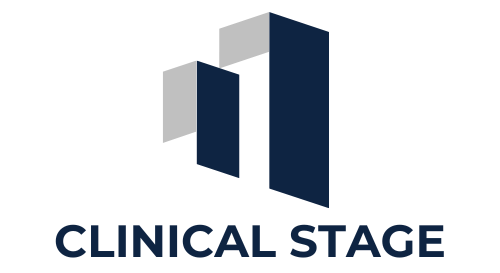The Role of Artificial Intelligence in Clinical Trials
Clinical trials are the cornerstone of medical research and drug development, playing a critical role in determining the safety and efficacy of new treatments. These trials, which often span several years and involve a vast array of participants and data points, are essential for bringing new therapies to market and improving patient outcomes. However, traditional clinical trial processes are fraught with challenges, including high costs, lengthy timelines, and difficulties in patient recruitment and retention. As the medical community seeks to address these challenges, Artificial Intelligence (AI) has emerged as a powerful tool to streamline and enhance clinical trial processes.
AI's integration into clinical trials marks a transformative shift, offering the potential to significantly accelerate drug development, reduce costs, and improve the accuracy and reliability of trial outcomes. By leveraging advanced algorithms and data analytics, AI can automate and optimize various aspects of clinical trials, from patient selection to data analysis and safety monitoring. This blog explores the multifaceted role of AI in clinical trials, highlighting how it is being used to revolutionize the field and what the future may hold for this burgeoning technology.
Overview of Clinical Trials
Clinical trials are a fundamental component of medical research, providing the necessary data to evaluate the safety and efficacy of new drugs, devices, and treatment protocols. These trials are typically divided into four phases. Phase I trials focus on assessing the safety of a treatment in a small group of healthy volunteers or patients, Phase II trials evaluate the efficacy and side effects in a larger patient group, Phase III trials involve a more extensive patient population to confirm efficacy and monitor adverse reactions, and Phase IV trials occur post-approval to gather additional information on the treatment's long-term effects and overall effectiveness.
Despite their critical importance, clinical trials face numerous challenges that can hinder their success. One of the most significant challenges is the high cost associated with conducting trials, which can run into hundreds of millions of dollars, depending on the complexity and duration of the study. Additionally, the time required to complete a clinical trial, from initial planning to final approval, can span several years, delaying the availability of potentially life-saving treatments. Patient recruitment and retention pose further challenges, with many trials struggling to enroll a sufficient number of eligible participants or facing high dropout rates. These issues highlight the need for innovative solutions to make clinical trials more efficient and cost-effective, and AI offers promising answers.
How AI is Revolutionizing Clinical Trials
AI is increasingly being utilized to address the various challenges associated with clinical trials, offering a range of solutions that enhance efficiency, accuracy, and overall trial quality. Here, we explore the key areas where AI is making a significant impact.
Data Collection and Management
Data collection and management are fundamental components of clinical trials, as they provide the basis for analysis and decision-making. Traditional methods of data collection, which often involve manual entry and paper-based systems, are prone to errors and inefficiencies. AI offers a transformative approach by automating data capture from various sources, including electronic health records (EHRs), wearable devices, and patient-reported outcomes.
AI systems can process and integrate vast amounts of data in real-time, ensuring that researchers have access to accurate and up-to-date information. This capability is particularly valuable in the context of real-time data monitoring and analysis, allowing for the continuous assessment of patient responses and the early detection of adverse events. Additionally, AI algorithms can be employed to clean and validate data, reducing the risk of errors and inconsistencies that can compromise the integrity of trial results.
Patient Recruitment and Retention
Patient recruitment and retention are critical to the success of clinical trials, yet they often present significant challenges. Identifying and enrolling eligible participants can be time-consuming and costly, and high dropout rates can jeopardize the validity of trial outcomes. AI has the potential to revolutionize this aspect of clinical trials by using sophisticated algorithms to match patients with appropriate trials based on their medical histories, genetic profiles, and other relevant factors.
Predictive analytics, powered by AI, can forecast patient retention and dropout rates, enabling researchers to implement strategies to enhance patient engagement and adherence. For example, AI-driven communication tools can provide personalized reminders, educational content, and support to participants, helping to improve their experience and commitment to the trial. This personalized approach not only facilitates better patient recruitment but also contributes to higher retention rates, thereby improving the overall quality and reliability of the trial data.
Trial Design and Optimization
The design and optimization of clinical trials are crucial for ensuring that they yield meaningful and reliable results. Traditionally, this process involves extensive planning and coordination, with researchers developing protocols that specify the study's objectives, methodologies, and endpoints. AI can significantly enhance this process by providing tools for AI-assisted protocol design and optimization.
Through simulation and modeling, AI can predict trial outcomes based on various parameters, allowing researchers to refine study designs and optimize resource allocation. This capability is particularly useful in the context of adaptive trial designs, where AI can facilitate real-time adjustments to the study based on interim data. For example, if early results indicate that a particular treatment arm is more effective, the trial can be adapted to focus on that arm, thereby increasing the efficiency and ethical considerations of the study.
Risk Management and Safety Monitoring
Ensuring patient safety is paramount in clinical trials, and AI offers powerful tools for risk management and safety monitoring. AI algorithms can be trained to detect adverse events and safety signals in real-time, allowing for immediate intervention and mitigation. This capability is particularly valuable in large-scale trials where manual monitoring may be impractical.
Predictive analytics can also be employed to assess risk factors and identify patients who may be at higher risk of experiencing adverse events. By providing insights into potential safety issues, AI enables researchers and clinicians to implement preventative measures and tailor monitoring protocols to individual patient needs. This proactive approach not only enhances patient safety but also contributes to the overall success of the trial by minimizing the likelihood of unforeseen complications.
Data Analysis and Insights
One of the most significant contributions of AI to clinical trials is in the area of data analysis and insights. Clinical trials generate vast amounts of data, often comprising complex and heterogeneous datasets. Analyzing this data manually can be time-consuming and may not fully capture the nuances and patterns present. AI, particularly machine learning algorithms, excels at processing and analyzing large datasets, identifying patterns, correlations, and insights that may not be immediately apparent.
By leveraging AI, researchers can enhance the statistical analysis of trial data, reducing biases and improving the robustness of the findings. For instance, AI can help identify subgroups of patients who respond differently to a treatment, providing valuable insights into personalized medicine and helping to refine treatment protocols. Additionally, AI-driven data analysis can accelerate the identification of potential biomarkers and therapeutic targets, further advancing the field of precision medicine.
Case Studies and Real-World Applications
Several companies and research institutions have successfully implemented AI in clinical trials, demonstrating the technology's transformative potential. One notable example is the use of AI by IBM Watson Health in oncology trials. IBM Watson's AI capabilities have been employed to analyze vast datasets from cancer patients, helping to identify potential new treatments and predict patient responses. This has led to more efficient trial designs and faster identification of promising therapies.
Another example is the collaboration between Google Health and various healthcare institutions to use AI in diabetic retinopathy screening. By leveraging deep learning algorithms, Google Health's AI can accurately detect diabetic retinopathy from retinal images, enabling earlier diagnosis and treatment. This technology has been integrated into clinical trials to assess its efficacy in real-world settings, demonstrating the potential for AI to improve diagnostic accuracy and patient outcomes.
The pharmaceutical company Novartis has also embraced AI in its clinical trial processes. Novartis uses AI to optimize trial design, enhance patient recruitment, and analyze trial data. By integrating AI into its operations, Novartis has been able to reduce trial timelines and improve the efficiency of its drug development pipeline.
These case studies highlight the diverse applications of AI in clinical trials, from oncology to ophthalmology and beyond. The successes achieved by these organizations underscore the potential of AI to revolutionize clinical research and accelerate the development of new therapies.
Notable Labs: Pioneering AI in Clinical Trials
Notable Labs is at the forefront of leveraging Artificial Intelligence (AI) to revolutionize clinical trials. In an era where the traditional methods of conducting trials are hampered by high costs, lengthy timelines, and complex data management challenges, Notable Labs stands out for its innovative use of AI to streamline and enhance these processes. The company utilizes advanced machine learning algorithms to automate and optimize various aspects of clinical trials, from patient selection to real-time data analysis and safety monitoring.
By integrating AI into the heart of its operations, Notable Labs can process vast amounts of data with unprecedented accuracy and speed. This capability not only accelerates the development of new therapies but also improves the precision of identifying suitable candidates for clinical trials, thereby enhancing patient outcomes. The company's AI-driven platform also excels in identifying potential biomarkers and therapeutic targets, pushing the boundaries of personalized medicine and paving the way for more targeted and effective treatments.
Notable Labs' commitment to ethical AI use, transparency, and data privacy ensures that their technological advancements align with the highest standards of patient safety and regulatory compliance. As the landscape of clinical trials continues to evolve, Notable Labs is poised to be a leader in harnessing AI's transformative potential, offering a glimpse into the future of medical research and drug development.
Ethical Considerations and Challenges
While the benefits of AI in clinical trials are substantial, the technology also raises important ethical considerations and challenges. One of the primary concerns is data privacy and security. Clinical trials often involve sensitive patient data, and the use of AI necessitates robust measures to protect this information. Ensuring that AI systems comply with data protection regulations, such as the General Data Protection Regulation (GDPR) in the European Union, is essential to maintaining patient trust and safeguarding their privacy.
Another ethical consideration is the transparency and accountability of AI algorithms. It is crucial that the algorithms used in clinical trials are transparent and interpretable, allowing researchers to understand how decisions are made. This is particularly important in the context of patient recruitment and risk assessment, where biases in AI algorithms could lead to unfair treatment or exclusion of certain patient groups. To address these concerns, researchers and developers must prioritize the development of fair and unbiased AI systems, and ensure that they are subject to rigorous testing and validation.
Balancing automation with human oversight is another challenge in the integration of AI into clinical trials. While AI can automate many aspects of the trial process, human expertise and judgment remain essential. Researchers and clinicians must work collaboratively with AI systems, providing oversight and ensuring that the technology is used ethically and responsibly. This collaborative approach can help mitigate potential risks and ensure that AI enhances, rather than replaces, human decision-making.
Future Directions and Trends
The integration of AI into clinical trials is still in its early stages, but the future holds exciting possibilities. Emerging technologies, such as natural language processing (NLP) and reinforcement learning, are likely to further enhance the capabilities of AI in clinical research. NLP, for example, can be used to analyze unstructured data, such as patient notes and medical literature, providing additional insights and improving the efficiency of data analysis.
The use of AI in real-world evidence (RWE) studies is another promising trend. RWE studies involve the analysis of data collected from real-world settings, such as electronic health records and patient registries. By leveraging AI, researchers can extract valuable insights from this data, informing the design and conduct of clinical trials and enhancing the understanding of treatment effectiveness in real-world populations.
The potential for AI to personalize medicine is also a significant area of future growth. As AI algorithms become more sophisticated, they will be able to identify individual patient characteristics that predict response to treatment. This will enable the development of personalized treatment protocols, improving patient outcomes and reducing the likelihood of adverse events.
Regulatory bodies will play a crucial role in overseeing the use of AI in clinical trials. As the technology evolves, it will be essential to establish clear guidelines and standards for the development and use of AI in clinical research. This will help ensure that AI is used ethically and responsibly, and that it contributes to the advancement of medical science.
Conclusion
The role of AI in clinical trials is transformative, offering the potential to revolutionize the field and accelerate the development of new therapies. From data collection and management to patient recruitment and retention, trial design, safety monitoring, and data analysis, AI is enhancing every aspect of the clinical trial process. The technology is already being successfully implemented in a variety of settings, demonstrating its potential to improve the efficiency, accuracy, and cost-effectiveness of clinical trials.
However, the integration of AI into clinical trials also presents challenges, including ethical considerations related to data privacy, algorithm transparency, and the need for human oversight. As the use of AI continues to grow, it will be essential for stakeholders to address these challenges and ensure that the technology is used responsibly.
Looking ahead, the future of AI in clinical trials is bright, with emerging technologies and trends poised to further enhance the capabilities of AI in clinical research. As AI continues to evolve, it will play an increasingly important role in the development of personalized medicine, improving patient outcomes and advancing the field of medical science.
In conclusion, the transformative potential of AI in clinical trials is immense. By embracing this technology and adopting a responsible and ethical approach to its use, stakeholders can unlock new possibilities in medical research and drug development, ultimately benefiting patients and improving public health.










